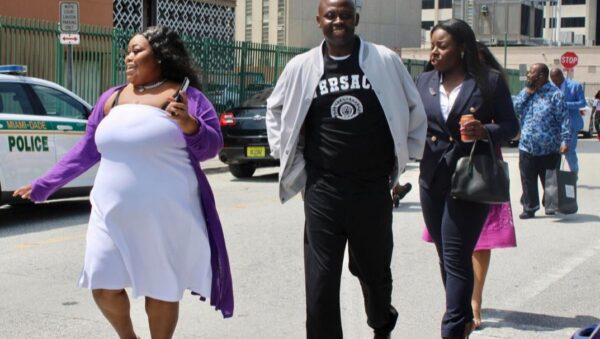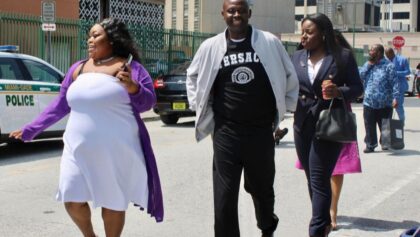A Florida man who was exonerated after serving 31 years in state prison for a crime he did not commit will not be compensated for the years he lost behind bars.
Under Florida law, Thomas Raynard James should qualify for more than $1.5 million for his 1991 wrongful conviction for the murder of an elderly Miami man in a home invasion and robbery, but a provision disqualifies him from receiving a payout, reports show.

“I’m not angry. I’m hurt,” James said. “I’m hurt by it.”
James, 55, was released in April after prosecutors reviewed his case. Miami-Dade State Attorney Katherine Fernandez Rundle said a key witness recanted their story, and James passed a polygraph test. Another man with the same name has been fingered in connection with the crime .
Thomas Raynard James was arrested in 1990 for the robbery and murder of Francis McKinnon after witnesses identified Vincent “Dog” Williams as one of the suspects. Thomas “Tommy” James said he had planned the crime with Williams, but he was arrested on unrelated charges before they could follow through. Williams then sought the help of another man, Derrick Evans, instead.
Rundle’s office also reviewed 10,000 pages of documents related to the case before freeing James.
While the state law awards Floridians $50,000 for each year of a wrongful conviction, Thomas was ineligible because he was convicted of another crime before he was sentenced to life in prison in January 1991.
Florida’s “clean hands” provision precludes those who committed crimes while in prison and before they were wrongfully convicted from being paid. James was convicted of resisting an officer with violence a year before his arrest for McKinnon’s murder.
“That means that the state of Florida is saying that we did you wrong and we now know that you are innocent, but we don’t owe you anything,” James said.
Adina Thompson, the intake coordinator with the Innocence Project of Florida, said Florida is the only state with the rule.
Reports show that only one person has qualified for compensation of up to $2 million over the past five years. However, 30 convictions were cleared since the law passed in 2008. NBC 6 reports that the state has paid just four people under the law.
“That’s really the biggest and most painful barrier to people who would otherwise be eligible,” Thompson said. “It is an issue that affects everyone because everyone could potentially experience a wrongful conviction themselves. So it’s basic humanity. It’s a basic kindness to repair a wrong society has done to these folks.”
Thomas, who was 23 years old when he was sentenced, said the payout he is now ineligible for is minor compared to how much he lost as he struggles to start his life over.
“It’s a small thing, really small, in comparison to what I lost,” James said.

